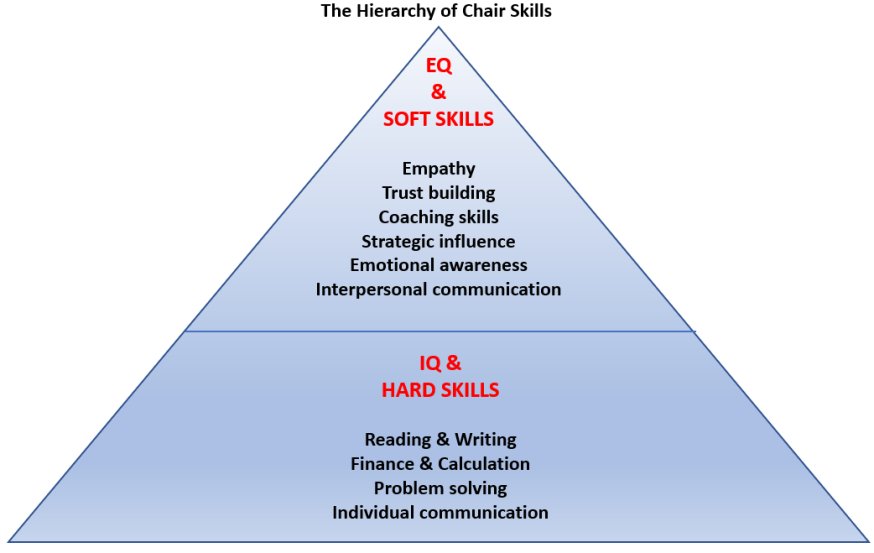
Companies should benefit all their stakeholders. This is increasingly on the minds of regulators, activists, politicians, pension investors and individuals of this world. As Larry Fink, Chairman and CEO of Blackrock, wrote in his 2019 Letter to CEOs, “society is increasingly looking to companies, both public and private, to address pressing social and economic issues”.
If we want boards to deliver benefits for a wider stakeholder group – and stop focusing on short-term profits – we need to shift the dial on women becoming chair of these boards. Failing that, the corporate landscape won’t change.
While there are excellent male chairs, too many are products of the old boys’ network. These men pay scant attention to their increasing accountability towards stakeholders beyond their shareholders. In the United Kingdom, the days of the Financial Reporting Council (the watchdog for auditors, accountants and actuaries) are now numbered after it was embroiled in one controversy too many.
Why more women chairs is a game changer
McKinsey & Company has a long history of published reports that have established the business case for diversity. Organisations with greater gender diversity outperform others, typically have a healthier risk profile and make better investment decisions. All of this generates greater client and customer satisfaction.
Based on peer-reviewed research, surveys and anecdotal evidence, we now know what makes an effective board chair. Beyond the obvious group of traits including integrity, personal strength, courage and intelligence, the critical skills are:
- an ability to influence others without dominating
- an engaged vision of the future
- strong emotional intelligence
- coaching skills.
If we schematise the skills of an effective chairperson, it may look like this:

At the base of the pyramid lie the rules-based, measurable hard skills. While they are necessary, they can be taught and learnt.
At the top of the pyramid, we find the intuition-based soft skills that require a high emotional quotient (EQ). Those skills can only be developed through experience, practice and internal focus.
EQ & soft skills are more often associated with women than men. Though differences between ‘feminine’ and ‘masculine’ traits have little bearing on the attributes of individual men and women, research does not support the notion that men are somehow better suited to the chairperson role.
It should be clear that women are just as capable as men in directing and chairing our companies. Furthermore, they have as much right to succeed, and fail, as their male counterparts do. Our reservoir of chair talent is not so great that we can afford to ignore 50 percent of the potential candidates.
Time to accelerate the pace of change
As the leaders of our companies are called upon to strengthen their engagement with society and all stakeholders, we need to better understand and articulate what a chair role entails. The “job description” must move beyond the domineering CEO stereotype, with its descriptors of drive, ambition and ruthlessness.
The soft skills of facilitation, collaboration, listening, synthesising, defusing conflict and ensuring consensus are the hallmarks of a successful chair. At the other end of the spectrum, directive, overly assertive and antagonistic are the traits of an ineffective chair.
By acting as role models, women chairs can provide additional societal benefits. For instance, they can act as a driving force for empowerment and to promote the inclusion of a broader talent pool. In the UK, advocates of increased acceleration of women in chair roles are multiplying. They include existing female directors, the Women on Boards network, Men as Change Agents (MACA), the International Women’s Forum (IWF), the Confederation of British Industry (CBI), the Institute of Directors (IoD) and the 30% Club.
While the positive pressure for more diverse boards does show results, the action on women chairs is far behind. Too many active resistors – including old-style chairmen and nomination committees – continue to reinforce the false idea that chairs must have at least a decade of board work under their belt. Head hunters tend to say that female chairs are difficult to find, repeating a narrative they used before national targets were established for women on boards. The statistics show this is not true.
Stopping the erosion of trust in business
We need a strong push to free boards held hostage by reductionist thinking. According to research by INSEAD Professor Stanislav Shekshnia, only 20 percent of boards in the UK will be women-led by 2027. This is not enough. It is time to take action to accelerate the acquisition of more female chairs, right across the public and private corporate environment.
In the UK, the new Combined Code with its cap of nine years of service on a single board will create more churn. Investment companies must start asking mediocre chairmen to step down. Women need a greater number of enthusiastic sponsors and more board-level development. I challenge more female directors to aim for the top role.
Having more women chairs will help rebuild the trust in our corporate environment and foster businesses that deliver performance mixed with social and environmental benefits. It may just be the key to a new era of sustainable long-term profit.
Helen Pitcher OBE (IDP-C) is the chair of Advanced Boardroom Excellence, which works with board effectiveness, board evaluation reviews and coaching chairs, CEOs and NEDs. She is a graduate of INSEAD's International Director's Programme.
Found this article useful? Subscribe to our weekly newsletter.
About the series
-
View Comments
(2) -
Gunnar Eckbo
29th October 2019 at 500pm at Hanken Business School the 3rd Women's Board Award take place.
The candidates are: Catharina Fagerholm, Anne Korkiakoski and Leena Niemistö that has been to interviews with Mercuri Urval and the jury of 6 persons. All have the competence for a Chair position in larger companies in Finland or in Europe.
Gunnar Eckbo
Styreinformasjon
CEO, Board Analyst
-
Leave a Comment





Gunnar Eckbo
04/07/2019, 11.37 pm
The demand is large for making competent and experienced female Chair talents visible. Female Board members are a bit passive concerning their Chair wishes. Therefore we started Women's Board Award 9 years ago in Norway, following years in Sweden, Denmark and Finland. In Switzerland this year in June. A domestic jury and a Search firm bring forward 3 nominees by an event W
with 120 invited guests and a Media Partner interviews the 3 nominees.
The winner receives a Board seminar to a value of € 6000 made possible of the Partners. More info about female Chair candidates in the Nordics and Switzerland www.womensboardaward.eu
Kind regards
Styreinformasjon
Gunnar Eckbo, CEO, Board Analyst